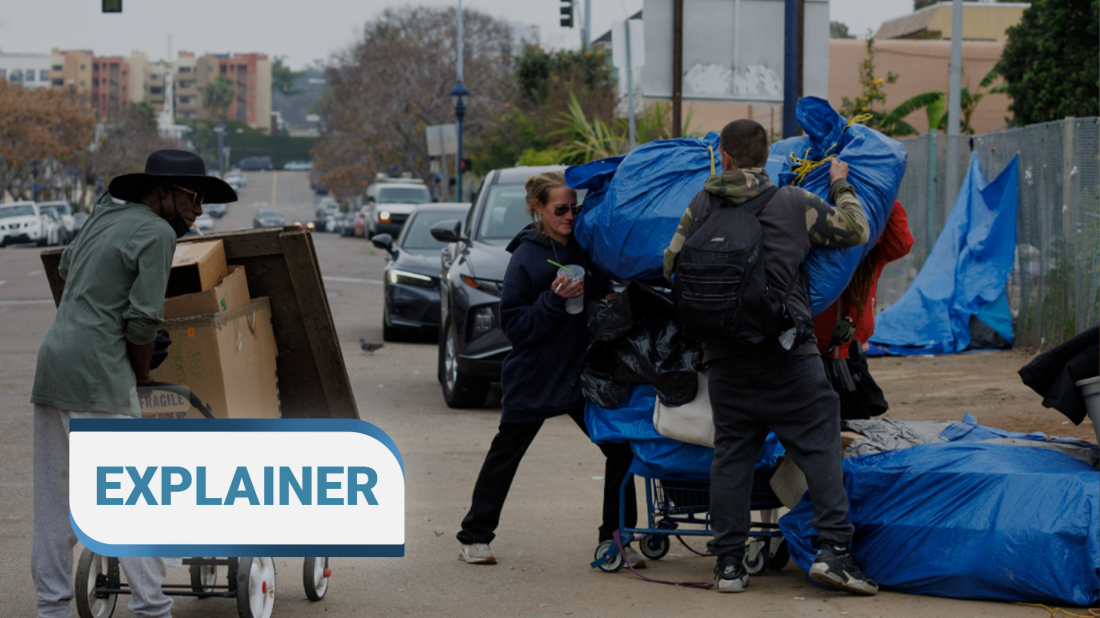Ajit Pawar: India’s top politician dies in charter plane crash
A private charter flight carrying one of India’s most prominent regional politicians ended in disaster on Wednesday morning, plunging the nation’s...

Homelessness in the United States is at record highs and still rising in 2025. A federal count last year found over 770,000 people without a home, a crisis fuelled by scarce affordable housing, rising costs, migration pressures, and the pandemic’s lasting impact.
The scale of the crisis
The latest annual count by the Department of Housing and Urban Development (HUD) found homelessness in the U.S. jumped by 18% in a single year. That’s a surge of more than 100,000 people from 2023. One in three of those counted were experiencing chronic homelessness, a year or more without stable housing, or repeated episodes of homelessness.
This “point-in-time” survey captures those in shelters, transitional housing, or living outdoors, but it does not include the millions living in overcrowded apartments, couch-surfing, or relying on friends and relatives for a place to sleep. That means the real number of housing-insecure Americans is far higher.
“Where rents go up, homelessness follows. It’s that simple — and that devastating.” — Jeff Olivet, former executive director, U.S. Interagency Council on Homelessness
What’s driving the rise?
While people become homeless for many personal reasons, job loss, family breakdown, illness, the overall national trend closely tracks the cost and availability of housing.
“You can’t solve homelessness with shelters alone. We have to get people into permanent housing and keep them there.” — Rosanne Haggerty, president, Community Solutions
Where it’s worst — and why
Homelessness is far more visible in coastal states and urban hubs.
Race and age patterns are stark: Black and Hispanic Americans are disproportionately affected, and homelessness among children under 18 is rising rapidly.
“Homelessness is not inevitable. It is the result of choices — about housing policy, about wages, about who gets help and who doesn’t.” — Nan Roman, president, National Alliance to End Homelessness
The cost of doing nothing
Homelessness is not just a humanitarian issue, it has social and economic costs.
What works — and what doesn’t
What works:
What doesn’t work alone:
“Homelessness is not just about losing a home — it’s about losing safety, health, and dignity.” — Donald Whitehead Jr., executive director, National Coalition for the Homeless
The policy challenge ahead
Experts agree that to reverse the trend, the U.S. must expand the supply of affordable housing, a slow process that requires changing zoning laws, investing in multi-family housing, and increasing funding for housing subsidies.
In the short term, strengthening prevention programmes, funding rapid rehousing, and maintaining access to mental health and addiction treatment are key. The real test will be whether political will, and budgets, can match the scale of the crisis.
Bottom line:
The surge in homelessness is not inevitable. It is the product of policy choices, housing markets, and economic pressures. Addressing it will require more than managing tents and shelters, it will demand a sustained commitment to making housing affordable, accessible, and a guaranteed part of America’s social contract.
Iran’s Foreign Ministry has strongly rejected a U.S. magazine report on the death toll during January unrest. Nationwide protests erupted in response to soaring inflation and a national currency crisis.
The death toll from nationwide protests in Iran has climbed to 6,126, according to the U.S.-based Human Rights Activists News Agency (HRANA).
NATO Secretary General Mark Rutte said on Monday that Europe is "incapable" of defending itself alone without the United States, dismissing calls for a separate European defence force and stressing that transatlantic cooperation remains essential for the continent’s security.
Germany’s Federal Chancellery has addressed allegations that the current Chancellor Friedrich Merz filed hundreds of criminal complaints for defamatory remarks and insults against him in the years before he took office.
France’s National Assembly has approved a bill banning access to social media for children under 15, a move backed by President Emmanuel Macron and the government as part of efforts to protect teenagers’ mental and physical health.
Brussels and Hanoi are set to sign a historic diplomatic upgrade. The partnership focuses on de-risking supply chains, tapping critical minerals, and expanding semiconductor capacity.
Spain’s Socialist-led government presented a draft decree on Tuesday to expedite legal status for hundreds of thousands of undocumented immigrants.
Start your day informed with AnewZ Morning Brief: here are the top news stories for the 28 January, covering the latest developments you need to know.
Police arrested a man who sprayed Democratic U.S. Representative Ilhan Omar with a foul-smelling liquid in Minneapolis on Tuesday as she condemned the actions of U.S. Immigration and Customs Enforcement officials in Minnesota.
A Russian drone strike on a passenger train in northeastern Ukraine killed five people, prosecutors said on Tuesday, an attack denounced as terrorism by Ukrainian President Volodymyr Zelenskyy.
You can download the AnewZ application from Play Store and the App Store.

What is your opinion on this topic?
Leave the first comment